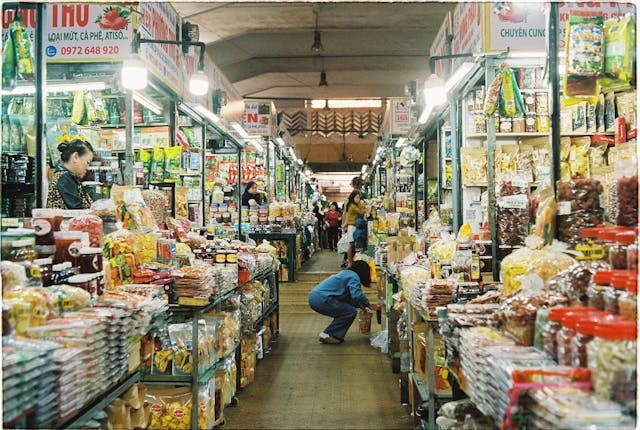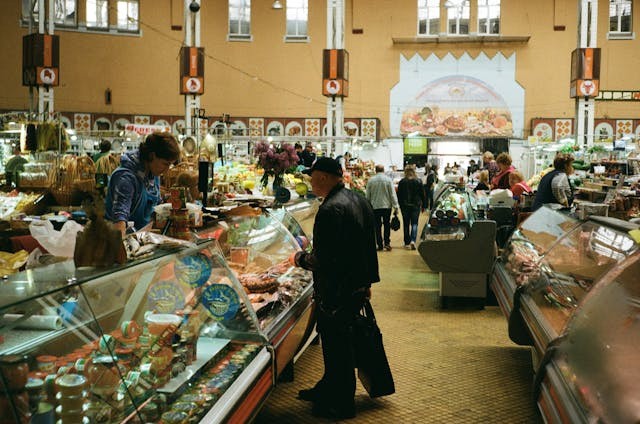
As the boycott of Loblaw-owned stores continues into its second month, small independent food retailers and alternative grocery options report increased traffic and sales.
The Forage Market in Edmonton saw a 57% rise in sales during the first half of May compared to the same period in April.
Independent Retailers See Sales Surge
As the boycott of Loblaw-owned stores continues into its second month, small independent food retailers and alternative grocery options report increased traffic and sales.
The Forage Market in Edmonton experienced a 57% rise in sales during the first half of May compared to the same period in April.
"It's fantastic to see people being mindful of where their food comes from," said business manager Courtney Hanak.
Forage Market functions like an online farmers market, hosting local vendors who sell meat, produce, and more. They warehouse products, so customers receive everything in one shipment.
According to Hanak, the surge in sales could accelerate Forage's plans to expand to Calgary. She hopes the interest in local and smaller companies lasts beyond May.
"Is this just a temporary spike? Maybe we're just having a great few weeks, and then things will return to normal," Hanak wondered.
A Reddit group criticizing Loblaw and other major grocers gained thousands of members earlier this year, leading to calls for a boycott due to frustration over high food prices and industry concentration. The group organized a boycott of all Loblaw-owned stores for May.
At the company's annual meeting on May 2, Loblaw chairman Galen Weston and CEO Per Bank dismissed the boycott as "misguided criticism." Loblaw maintains it is not responsible for food inflation and has been trying to control rising prices by resisting price increase requests from suppliers.
Also Read: North Face Shutters Downtown Seattle Location Amid Retail Sector Struggles
Recently, Loblaw announced its willingness to sign a voluntary grocery code of conduct to create fairer conditions for suppliers and smaller retailers.
The boycott has driven shoppers to local options, including grocery co-operatives where members own stores and are often the customers themselves.
For instance, Steep Hill Food Co-op in Saskatoon reported an increase in membership this month, providing significant support to the organization.
Co-ops and Alternatives See Growth

The main grocery store in the area closed down two years ago. Recently, the local co-op expanded its offerings to include more conventional items alongside its fair-trade and organic products, according to manager Amielle Christopherson.
"We've adjusted our inventory to meet neighborhood needs and keep our doors open," said Christopherson.
This change boosted membership, with growth accelerating by late April.
"We're selling two or three memberships a day now," she noted. "It wasn't like this before."
Christopherson believes joining a co-op provides a sense of community, especially around food.
Karma Co-op in Toronto also saw a membership surge since the boycott began.
In a May 10 press release, the co-op reported over 50% month-over-month growth, making 2024 its biggest year for recruitment.
New grocery models have emerged through apps and websites, gaining interest. Odd Bunch, for example, sends customers imperfect produce, saving money and reducing food waste, said CEO Divyansh Ojha: "It's a win-win."
Odd Bunch started in London, Ont., and expanded rapidly. In May, sign-ups were 60 to 70% higher than last year.
"People are willing to try alternatives," Ojha said, emphasizing the need to sustain interest.
Tre'dish connects consumers directly with producers, offering 30% savings.
After launching in March, it saw significant growth and expanded into Toronto before the boycott. According to CEO Peter Hwang, subscriber numbers increased by 186%.
"It's a much-needed model, explaining the strong interest," Hwang said.
Related Article: Wayfair Ventures Into Physical Retail with New Store Opening in Chicago















